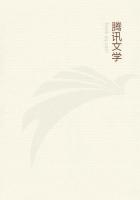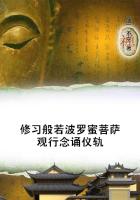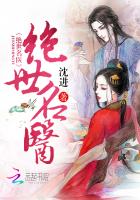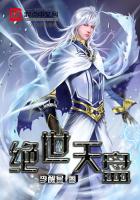The circumstances of his accession to the throne, as will presently appear, are differently told. Once, however, made King of Malaya, the modern Malwa, a province of Western Upper India, he so distinguished himself that the Hindu fabulists, with their usual brave kind of speaking, have made him "bring the whole earth under the shadow of one umbrella,"The last ruler of the race of Mayura, which reigned 318 years, was Raja-pal. He reigned 25 years, but giving himself up to effeminacy, his country was invaded by Shakaditya, a king from the highlands of Kumaon. Vikramaditya, in the fourteenth year of his reign, pretended to espouse the cause of Raja-pal, attacked and destroyed Shakaditya, and ascended the throne of Delhi. His capital was Avanti, or Ujjayani, the modern Ujjain. It was 13 kos (26 miles) long by 18 miles wide, an area of 468 square miles, but a trifle in Indian History. He obtained the title of Shakari, "foe of the Shakas," the Sacae or Scythians, by his victories over that redoubtable race. In the Kali Yug, or Iron Age, he stands highest amongst the Hindu kings as the patron of learning. Nine persons under his patronage, popularly known as the "Nine Gems of Science," hold in India the honourable position of the Seven Wise Men of Greece.
These learned persons wrote works in the eighteen original dialects from which, say the Hindus, all the languages of the earth have been derived. Dhanwantari enlightened the world upon the subjects of medicine and of incantations. Kshapanaka treated the primary elements. Amara-Singha compiled a Sanskrit dictionary and a philosophical treatise. Shankubetalabhatta composed comments, and Ghatakarpara a poetical work of no great merit.
The books of Mihira are not mentioned. Varaha produced two works on astrology and one on arithmetic. And Bararuchi introduced certain improvements in grammar, commented upon the incantations, and wrote a poem in praise of King Madhava.
But the most celebrated of all the patronized ones was Kalidasa.
His two dramas, Sakuntala, and Vikram and Urvasi, have descended to our day; besides which he produced a poem on the seasons, a work on astronomy, a poetical history of the gods, and many other books.
Vikramaditya established the Sambat era, dating from A.C. 56.
After a long, happy, and glorious reign, he lost his life in a war with Shalivahana, King of Pratisthana. That monarch also left behind him an era called the " Shaka," beginning with A.D. 78. It is employed, even now, by the Hindus in recording their births, marriages, and similar occasions.
King Vikramaditya was succeeded by his infant son Vikrama-Sena, and father and son reigned over a period of 93years. At last the latter was supplanted by a devotee named Samudra-pala, who entered into his body by miraculous means.
The usurper reigned 24 years and 2 months, and the throne of Delhi continued in the hands of his sixteen successors, who reigned 641 years and 3 months. Vikrama-pala,, the last, was slain in battle by Tilaka-chandra, King of Vaharannah.
It is not pretended that the words of these Hindu tales are preserved to the letter. The question about the metamorphosis of cats into tigers, for instance, proceeded from a Gem of Learning in a university much nearer home than Gaur. Similarly the learned and still living Mgr. Gaume (Traite du Saint-Esprit, p.. 81) joins Camerarius in the belief that serpents bite women rather than men.
And he quotes (p.. 192) Cornelius a Lapide, who informs us that the leopard is the produce of a lioness with a hyena or a bard..
The merit of the old stories lies in their suggestiveness and in their general applicability. I have ventured to remedy the conciseness of their language, and to clothe the skeleton with flesh and blood.
To My Uncle, ROBERT BAGSHAW, OF DOVERCOURT, These Tales, That Will Remind Him Of A Land Which He Knows So Well, Are Affectionately Inscribed.
INTRODUCTION
The sage Bhavabhuti -- Eastern teller of these tales -- after ****** his initiatory and propitiatory conge to Ganesha, Lord of Incepts, informs the reader that this book is a string of fine pearls to be hung round the neck of human intelligence; a fragrant flower to be borne on the turband of mental wisdom; a jewel of pure gold, which becomes the brow of all supreme minds; and a handful of powdered rubies, whose tonic effects will appear palpably upon the mental digestion of every patient. Finally, that by aid of the lessons inculcated in the following pages, man will pass happily through this world into the state of absorption, where fables will be no longer required.
He then teaches us how Vikramaditya the Brave became King of Ujjayani.
Some nineteen centuries ago, the renowned city of Ujjayani witnessed the birth of a prince to whom was given the gigantic name Vikramaditya. Even the Sanskrit-speaking people, who are not usually pressed for time, shortened it to "Vikram", and a little further West it would infallibly have been docked down to "Vik".
Vikram was the second son of an old king Gandharba-Sena, concerning whom little favourable has reached posterity, except that he became an ass, married four queens, and had by them six sons, each of whom was more learned and powerful than the other.
It so happened that in course of time the father died. Thereupon his eldest heir, who was known as Shank, succeeded to the carpet of Rajaship, and was instantly murdered by Vikram, his "scorpion", the hero of the following pages.
By this act of vigour and manly decision, which all younger-brother princes should devoutly imitate, Vikram having obtained the title of Bir, or the Brave, made himself Raja. He began to rule well, and the gods so favoured him that day by day his dominions increased. At length he became lord of all India, and having firmly established his government, he instituted an era--an uncommon feat for a mere monarch, especially when hereditary.
The steps, says the historian, which he took to arrive at that pinnacle of grandeur, were these:















